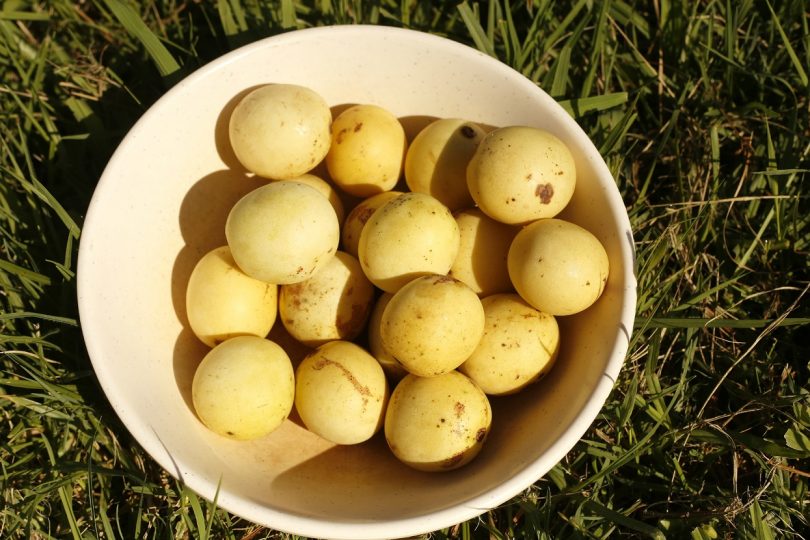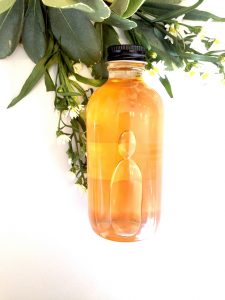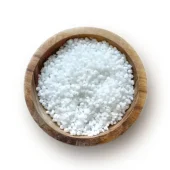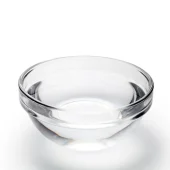As with any industry, there are trends that are observed in the raw ingredient market. It’s never quite clear how these trends gain momentum. The latest material to take the bulk wholesale cosmetic industry by storm is Marula Oil. Jedwards International is thrilled to be adding Virgin Organic Marula Oil to our ever-growing list of natural products.
Marula trees are native to Africa, primarily the southern regions, thriving in the hot, dry climate. Historically, Sclerocarya Birrea, better known as the Marula tree, goes back thousands of years belonging to the same genus as cashew, mango and pistachio. Archeological research indicates it as a source of nutrition dating back to 10,000 B.C. In addition, every facet of the tree can be utilized in some way. The bark and roots are used for medicinal purposes. The sturdy texture of the wood is tremendous for the making of furniture and utensils. The fruit, which ripen between December and March, has a variety of purposes from cooking to cosmetics. Having an appearance of light yellow skin with white flesh, the fruit is rich in Vitamin C, containing about 8 times the amount found in an orange, as well as potassium, calcium and magnesium. Inside the fruit is a walnut-sized kernel which is cold pressed to extract the oil. Marula Oil has a fatty acid structure similar to olive oil but doesn’t chemically deteriorate as quickly. The high content of fatty acids helps to make it a stable oil. It contains both polyunsaturated and saturated fatty acids.
Venerated as a holy tree by many tribes in Africa, the tree is protected by law in South Africa. Wildlife such as impala, kudu, baboons, warthogs and elephants have been known to dine on the sweet fruit. According to African lore, the fruit of the Marula tree organically ferments, resulting in animals as large as elephants getting inebriated when they eat it. There are traveler tales dating back to 1839 reporting Zulu accounts of this oft repeated phenomenon. For some reason, people want to believe in drunken pachyderms. There was even a documentary produced in 1974 called “Beautiful People” which shows footage of wild animals getting drunk after eating Marula fruit. The documentary has been revealed to be completely staged. Scientific research done by Steve Morris, a biologist at the University of Briston in England, reports there is nothing in the biology of either the African elephant or the Marula fruit to support this myth.
This lightly textured oil with a sweet, slightly nutty aroma is naturally soothing and absorbs quickly. Commonly used to treat leather, imagine the benefits to human skin? Rich in anti-oxidants, it is hydrating and nourishing with emollient characteristics. The current trend today is to add Marula Oil to hair care products to improve dry, damaged conditions and cosmetic applications to increase elasticity in maturing skin. In the food industry, gourmet chefs are catching on to Marula Oil’s unique nutritional qualities and taste. It has a low smoke point so the most effective use is in raw, uncooked recipes such as dips and salads. If cooking with the oil, it should be heated gently, much like Virgin Organic Olive Oil. Virgin Organic Marula Oil will be making its debut to Jedwards International in mid-July.
Don’t forget to share this blog on Facebook to be entered to win a $50 credit toward your next order!






